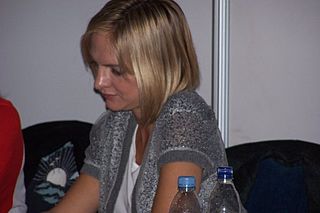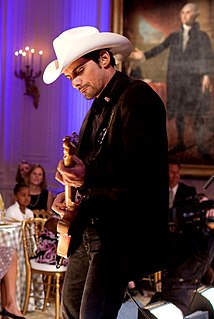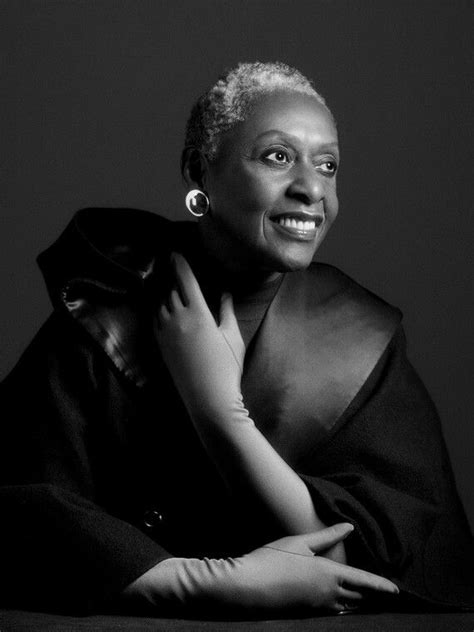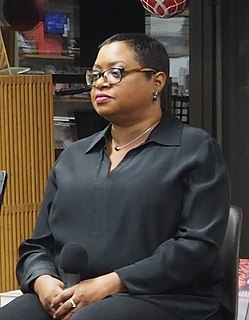A Quote by Zelda Fitzgerald
The Flapper awoke from her lethargy of sub-deb-ism, bobbed her hair, put on her choicest pair of earrings and a great deal of audacity and rouge and went into the battle. She flirted because it was fun to flirt and wore a one-piece bathing suit because she had a good figure she was conscious that the things she did were the things she had always wanted to do. Mothers disapproved of their sons taking the Flapper to dances, to teas, to swim and most of all to heart.
Related Quotes
Tessa had begun to tremble. This is what she had always wanted someone to say. What she had always, in the darkest corner of her heart, wanted Will to say. Will, the boy who loved the same books she did, the same poetry she did, who made her laugh even when she was furious. And here he was standing in front of her, telling her he loved the words of her heart, the shape of her soul. Telling her something she had never imagined anyone would ever tell her. Telling her something she would never be told again, not in this way. And not by him. And it did not matter. "It's too late", she said.
At that moment a very good thing was happening to her. Four good things had happened to her, in fact, since she came to Misselthwaite Manor. She had felt as if she had understood a robin and that he had understood her; she had run in the wind until her blood had grown warm; she had been healthily hungry for the first time in her life; and she had found out what it was to be sorry for someone.
Yet there were times when he did love her with all the kindness she demanded, and how was she to know what were those times? Alone she raged against his cheerfulness and put herself at the mercy of her own love and longed to be free of it because it made her less than he and dependent on him. But how could she be free of chains she had put upon herself? Her soul was all tempest. The dreams she had once had of her life were dead. She was in prison in the house. And yet who was her jailer except herself?
She's a yellow pair of running shoes, a holey pair of jeans. She looks great in cheap sunglasses, she looks great in anything. She's, "I want a piece of chocolate cake; take me to a movie." She's a, "I can't find a thing to wear." Now and then she's moody. She's a Saturn with a sunroof with her brown hair blowing. She's a warm conversation I wouldn't miss for nothing. She's a fighter when she's mad and she's a lover when she's lovin'.
She looked at him then, but his image blurred behind tears that swelled into her eyes. She must leave. She must leave this room, because she wanted to hit him, as she had sworn she never would do. She wanted to cause him pain for taking a place in her heart that she wouldn't have given him if she'd known the truth. "You lied to me," she said. She turned and ran from the room.
In this moment she felt that she had been robbed of an enormous number of valuable things, whether material or intangible: things lost or broken by her own fault, things she had forgotten and left in houses when she moved: books borrowed from her and not returned, journeys she had planned and had not made, words she had waited to hear spoken to her and had not heard, and the words she meant to answer with. . . .
Once upon a time there was a girl who wanted to put her fist through a mirror. She would tell everyone it was so that she could see what was on the other side, but really, it was so that she wouldn't have to look at herself. That, and because she thought she might be able to steal a piece of glass when no one was looking, and use it to carve her heart out of her chest.
She had been sharing a house with him for a week, and he had not once flirted with her. He had worked with her, asked her opinion, slapped her on the knuckles figuratively speaking when she was on the wrong track, and acknowledged that she was right when she corrected him. Dammit, he had treated her like a human being.
She stared at herself in the mirror. Her eyes were dark, almost black, filled with pain. She'd let someone do that to her. She'd known all along she felt things too deeply. She became attached. She didn't want a lover who could walk away from her, because she could never do that - love someone completely and survive intact if her left her.
I was the first person that had been so kind to Iman Abdulmajid. As time went on, and she became successful, signed with an agency, when she had to make big decisions, she wouldn't always talk to an agent, she'd ask me. I'd give her good advice and she'd be on her way. When I had ideas to do things like the Black Girls Coalition, I would always talk to her, she always loved my ideas. She trusts me.
When I looked at [Fannie Lou] Hamer and that speech it seemed to me that she had to be the bravest woman ever, to come before that body and to assert her rights, when she knew that she was going lose that battle. But she did it anyway, because she knew she was speaking not just for herself and for that day, but for me, and for all the other young women who were coming behind her. She didn't know our names, but she was working for us. I find that incredibly empowering.
Because of course she had known she must go. She always did the thing because in obedience lay the integrity that God asked of her. If anyone had asked her what she meant by integrity she would not have been able to tell them but she had seen it once like a picture in her mind, a root going down into the earth and drinking deeply there. No one was really alive without that root.







































